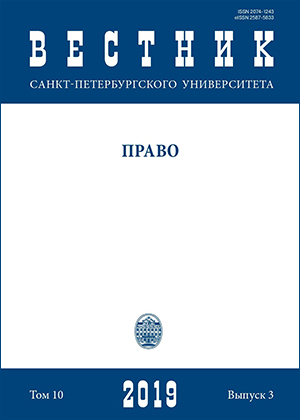Проблемы правоприменительной практики негласных следственных действий в Казахстане
DOI:
https://doi.org/10.21638/spbu14.2019.312Abstract
At present, the legal system of Kazakhstan is undergoing a period of dynamic reform based on the advanced experience of developed European countries. The reform process is aimed at improving the efficiency of the criminal justice system by including new methods of obtaining forensic evidence. At the same time, the Kazakhstan model based on the Soviet period has significant differences from the Western model. The most important of them is the separate functioning of types of legal activity, such as operational investigative activities and criminal proceedings. This article analyzes the different points of view on the institute of secret investigative actions, which was introduced into the legislation of Kazakhstan in 2014. One group of lawyers supports these norms. Other scholars categorically object to this legal institution because of potential violations of human rights and freedoms. Relevant issues of law enforcement practice of this institution are also examined. Since the introduction of the institute of unspoken investigations into Kazakhstani criminal procedural legislation, serious problems of the theory and practice of criminal proceedings have become apparent. One of the central problems is the continuing separation of police services into operational and investigative units. Such a division does not correspond to the foreign model of pre-trial investigation, where such a division is absent. There are two ways to solve the accumulated problems. The first way is to eliminate the division into operational and investigative units. The second way is to eliminate the secret investigative actions from the current legislation and return to the previous model. These proposals can be the ground for further scientific discussion of the positive and negative sides of the secret investigative actions. On their basis, proposals may be developed for further reforming Kazakhstan’s criminal procedure legislation.
Keywords:
criminal process, hidden investigations, investigative actions, secret investigative actions, operative-search activity
Downloads
References
Downloads
Published
How to Cite
Issue
Section
License
Articles of "Vestnik of Saint Petersburg University. Law" are open access distributed under the terms of the License Agreement with Saint Petersburg State University, which permits to the authors unrestricted distribution and self-archiving free of charge.






